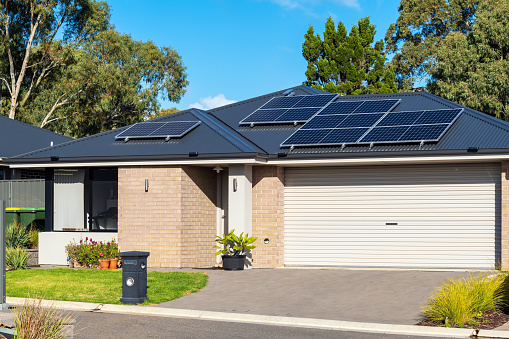What You Should Consider Before Installing Solar Panels on Your Roof
Solar Panels are becoming more affordable and efficient. It’s now possible to generate your own electricity and even sell electricity back to the utility grid. But before you embark on this major project there are many factors to consider before moving forward. Here is a list of things to consider:
- Is Your Roof Old? If your roof is reaching the age when it will need to be replaced, then replace it now before you install solar panels. Installing solar panels on an older roof means you’re going to have to pay to have the panels removed and installed again.
- What’s the Shape of Your Roof? If your roof isn’t large enough or its shape won’t allow enough space for solar panels, your investment could be wasted and not produce the desired results.
- What Direction is the Slope of Your Roof? In order to work properly, solar panels have to be mounted facing in the right direction to generate the most electricity. If your roof won’t allow this then you should reconsider doing the installation.
- Can Your Roof Handle the Weight of Solar Panels? Solar panels are heavy, and they will add stress to your roof. Have a professional inspect your roof to ensure it is capable of handling the weight.
- Will Water be able to Properly Run Off Your Roof? Rainwater runs off your roof and into gutters to be moved away from your home. When you install solar panels, you could inadvertently change the way water leaves your roof. This could create leaks that would involve repairs and require the panels be removed. Check with your contractor and share your concern. Be sure they have a plan to install the panels that will not cause run off problems
- How to Connect to the Grid? In order to supply excess electricity to the utility grid you will have to be connected to it. You should research this and determine if there are any fees associated with gaining connection. Also find out how you will be compensated for the electricity you return to the utility grid.
These are just a few of the issues you’ll want to research before moving forward with your plans. Other things to consider would be warranties on the equipment, insurance coverage for any future damage from storms or other issues, were there any rebates to lower the cost, and what will be necessary for future maintenance.

